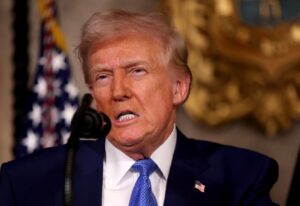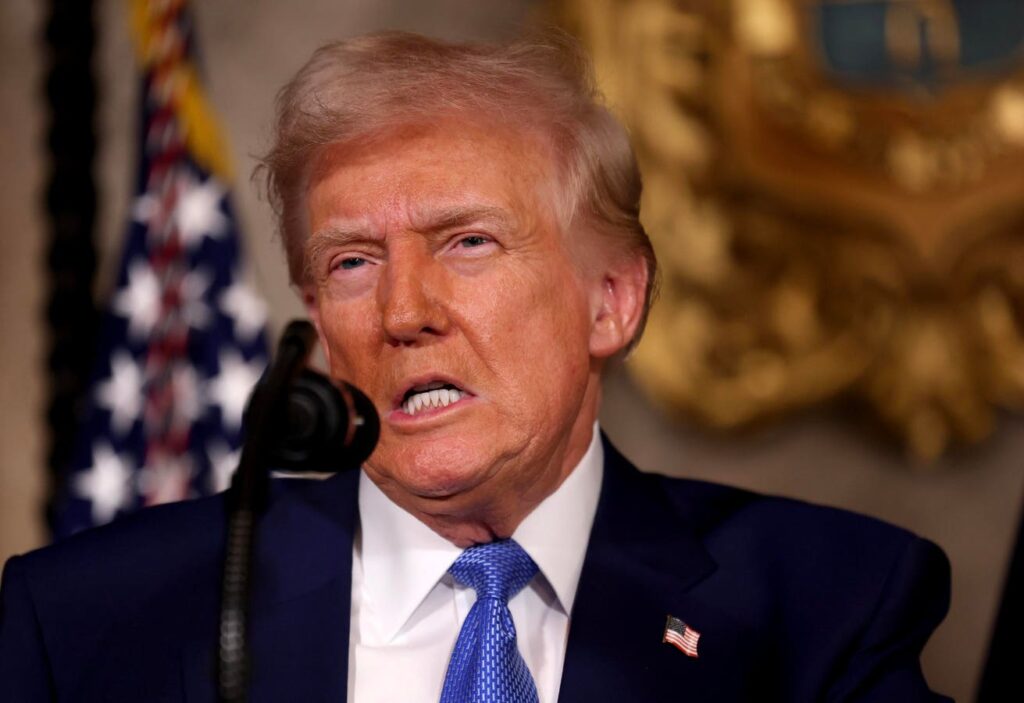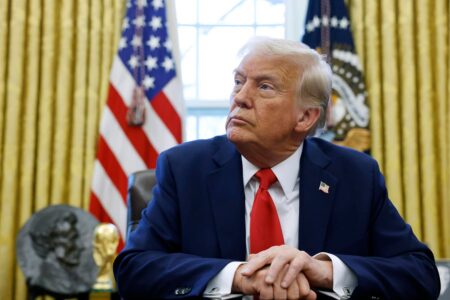It’s difficult to say whether President Donald Trump is serious about every plan he suddenly announces, but a new one on top of tariffs and trade policies is potentially financially disturbing on a global level.
Being called the “Mar-a-Lago Accord,” it would involve several stages. First, the U.S. would try to force some foreign creditors, which hold large amounts of long-term Treasury notes, to trade them in for special extra-long-term Treasurys.
Swapping Debt Types
Bloomberg reports that the replacements would be 100-year, non-tradeable zero-coupon bonds. That means the bonds wouldn’t pay interest. Instead, they would sell at a discount from their face value. Holding them to maturity would be the only way to recoup the investment and the accompanying return. If one of the countries needed cash, they could borrow temporarily from the Federal Reserve against the bond.
In theory, this could drive down interest payments on the federal debt, which last year topped $1 trillion annually for the first time. Eventually, interest would come due, but in 100 years, all the politicians responsible would be long-dead, having kicked the can down a full century.
Weakening the Dollar
Another aspect is the existing push on tariffs. The Trump administration wants to use them in the process of restructuring global trade and weaken the dollar, although they say outwardly that they want a strong dollar. The reason for a weaker dollar would be to reduce borrowing costs, as Jim Bianco, founder of research and analysis firm Bianco Research, told Bloomberg. If the dollar is worth less, so is the total debt.
While that is one view, another is that a weaker dollar would ultimately make debt more expensive because foreign investors would be worried about U.S. stability and, as a result, demand higher interest rates, eventually increasing the cost of debt.
Bianco also said that while he didn’t think it would happen soon, or maybe ever, Trump could turn global financial markets upside down and inside out.
First, the amount of publicly-held debt owned by foreign and international investors is much smaller than many think. At the end of the third quarter of 2024, the total amount of the federal debt held by the public was $23,325,715,000,000.
Consequences of Debt
The amount held by foreign and international investors was $8,672,900,000,000, which is about 37.2%. Focusing on a few of the largest foreign holders, like Japan and China, would affect a relatively small part of the debt, and it seems unlikely that such countries would agree to exchange all of their holdings for very long-term debt.
Trying to force other countries to take such a deal would be a dangerous move, showing weakness and undermining confidence in the U.S. That could result in demand for higher interest rates to compensate for greater perceived risk. Another potential issue would be undermining the stance of the U.S. dollar as the world’s leading reserve currency.
The move toward a weaker dollar would mean imports would cost more. Companies would pass along at least some if not all of those expenses to customers, pushing up prices and increasing the risk of growing inflation.
Read the full article here











